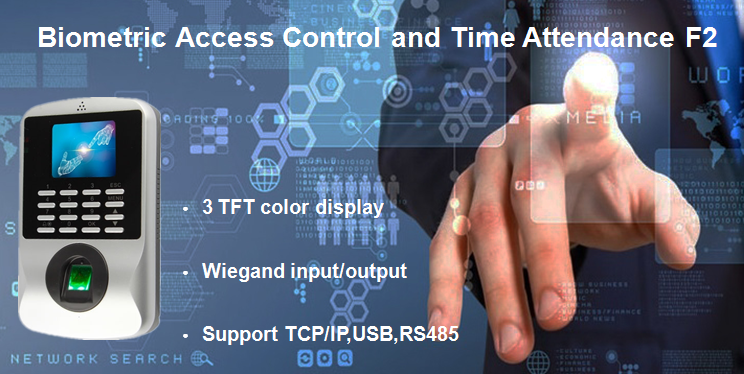Error de formato de correo electrónico
emailCannotEmpty
emailDoesExist
pwdLetterLimtTip
inconsistentPwd
pwdLetterLimtTip
inconsistentPwd


Advantages of Biometric Fingerprint Door Locks Over Traditional Locks
In the rapidly evolving landscape of security technology, businesses are constantly seeking innovative solutions to safeguard their assets and premises. One notable advancement in this realm is the emergence of biometric fingerprint door locks, offering a cutting-edge alternative to traditional locks. In this blog post, we'll explore the key advantages that biometric fingerprint door locks bring to the table in comparison to their traditional counterparts.
Precision and Personalization
Biometric fingerprint door locks operate on the principle of individuality. Unlike traditional locks that rely on keys or codes, biometric locks recognize and authenticate users based on their unique fingerprints. This precision not only enhances security but also eliminates the risk associated with lost or stolen keys.
The system's ability to store and recognize multiple fingerprints ensures flexibility in access control. Business partners can enjoy a personalized and seamless entry experience, with the added benefit of easily managing access permissions for different individuals within the organization.
Enhanced Security
Security is paramount in the business world, and biometric fingerprint door locks provide a higher level of protection compared to traditional locks. Fingerprint recognition is extremely difficult to replicate, reducing the likelihood of unauthorized access. Additionally, the use of live biometric data ensures that the system cannot be fooled by static images or replicas.
For business partners, this heightened security translates to greater peace of mind, especially in industries where confidentiality and data protection are of utmost importance. The risk of break-ins or unauthorized access is significantly diminished, contributing to a more secure working environment.
Convenience and Efficiency
The convenience offered by biometric fingerprint door locks is a game-changer for businesses. With a simple touch, authorized personnel can gain access, eliminating the need for physical keys or remembering complex codes. This not only saves time but also reduces the chances of employees being locked out due to forgotten credentials.
Business partners can appreciate the efficiency that biometric systems bring to access management. The streamlined process of fingerprint recognition enhances the overall flow of daily operations, contributing to a more productive work environment.
Audit Trails and Accountability
Biometric fingerprint door locks provide a robust system for monitoring and tracking access. Every entry attempt is recorded, creating a detailed audit trail. This feature is invaluable for businesses, offering insights into who accessed specific areas and at what times.
For business partners engaged in collaborations or shared office spaces, this level of accountability is crucial. It enhances transparency and can serve as a valuable tool for resolving any disputes or security-related incidents that may arise.
Integration with Modern Technology
In the era of smart buildings and interconnected systems, biometric fingerprint door locks seamlessly integrate with modern technology. Many biometric systems are designed to be part of larger security ecosystems, allowing for centralized management through software interfaces.
Business partners looking to stay ahead in terms of technological integration can appreciate the compatibility of biometric systems with other smart devices and security protocols, providing a holistic approach to premises security.
Conclusion
In conclusion, the advantages of biometric fingerprint door locks over traditional locks are evident in precision, enhanced security, convenience, accountability, and integration with modern technology. As businesses prioritize robust security measures, investing in biometric solutions becomes not just a choice but a strategic imperative. For business partners seeking a reliable and advanced access control system, biometric fingerprint door locks represent a key to unlocking a safer and more efficient future.

